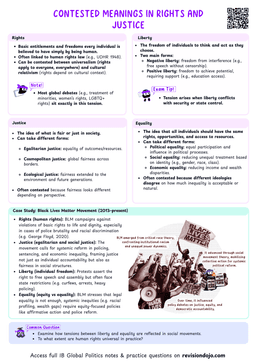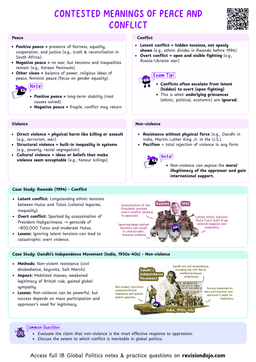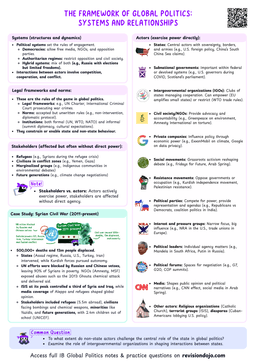Understanding Global Governance
Global governance
Global governance refers to the coordinated efforts of states, international organizations, and non-state actors to address transnational issues that no single nation can solve alone.
Key Characteristics
- Multilateral Cooperation: Involves multiple countries working together.
- Non-Binding Agreements: Often relies on voluntary compliance rather than enforceable laws.
- Diverse Actors: Includes states, international organizations, NGOs, and multinational corporations.
- Global governance is not a world government.
- It lacks a central authority and relies on voluntary cooperationand norms.
The Role of International Law
International law
International law is a body of rules, norms, and principles that govern the relationships and interactions between states, international organizations, and, in some cases, individuals. It is designed to promote peace, security, cooperation, and justice on a global scale.
- Sources of International Law:
- Treaties: Formal agreements between states (e.g., the Paris Agreement on climate change).
- Customary International Law: Practices accepted as legally binding (e.g., the prohibition of genocide).
- General Principles of Law: Fundamental legal concepts recognized by civilized nations.
- Judicial Decisions and Scholarly Writings: Used as subsidiary means for interpreting the law.
- The United Nations Charter is a foundational treaty that establishes the principles of sovereignty, non-intervention, and collective security.
Key Institutions of Global Governance
1. United Nations (UN):
- Purpose: Maintain international peace and security, promote human rights, and foster development.
- Key Bodies:
- Security Council: Responsible for maintaining peace and security.
- General Assembly: A forum for all member states to discuss global issues.
- International Court of Justice (ICJ): Settles legal disputes between states.
- The UN Security Council authorized military intervention in Libya in 2011 under Resolution 1973, citing the Responsibility to Protect (R2P) doctrine.
2. World Trade Organization (WTO):
- Purpose: Regulate international trade and resolve trade disputes.
- Significance: Promotes economic interdependence and reduces trade barriers.
3. International Monetary Fund (IMF) and World Bank:
- Purpose: Provide financial assistance and support economic development.
- Criticism: Accused of imposing austerity measures that harm developing countries.
- The IMF and World Bank are often criticized for their one-size-fits-all approach to economic policy, which may not consider the unique needs of individual countries.
Challenges of Global Governance
Sovereignty vs. Cooperation:
States may resist international agreements that infringe on their sovereignty.
- The U.S. withdrawal from the Paris Agreement under the Trump administration.
Enforcement:
International law often lacks mechanisms to enforce compliance.
- The International Criminal Court (ICC) struggles to arrest indicted individuals without state cooperation.
Inequality:
Power imbalances between developed and developing countries can skew decision-making.
- The WTO has been criticized for favoring wealthy nations.
- When analyzing global governance, consider the tension between state sovereignty and the need for collective action.
- This tension is a central theme in international relations.
The Future of Global Governance
- Emerging Issues:
- Climate Change: Requires unprecedented cooperation and innovative solutions.
- Cybersecurity: Challenges traditional notions of sovereignty and security.
- Reform Proposals:
- Democratizing International Institutions: Giving greater voice to developing countries.
- Enhancing Enforcement Mechanisms: Strengthening the ability of international courts to enforce rulings.
- Identify three key institutions of global governance and explain their roles.
- Analyze the challenges of enforcing international law in a world of sovereign states.
- Reflect on how emerging issues like climate change are shaping the future of global governance.


